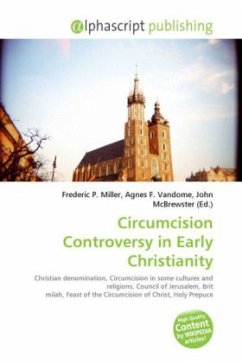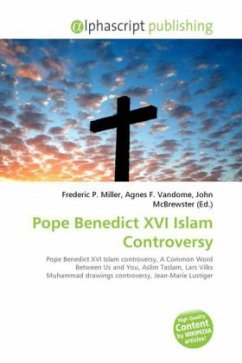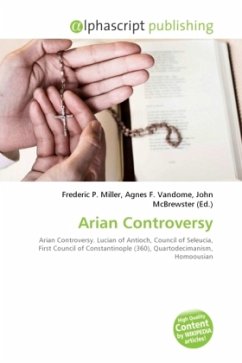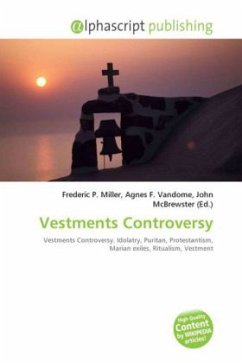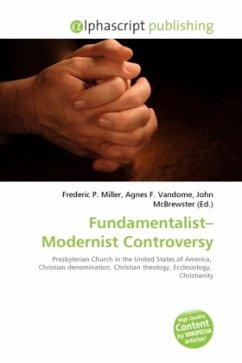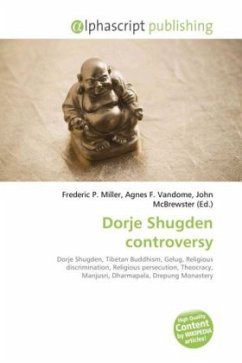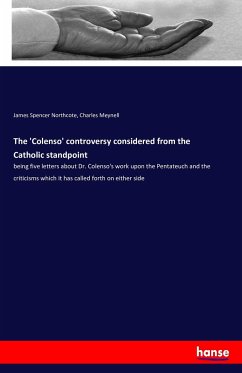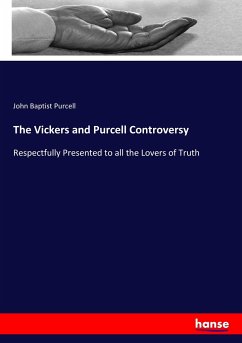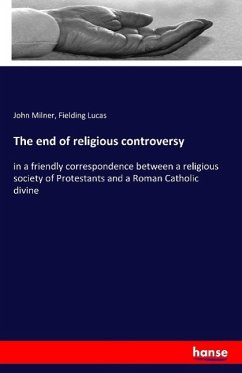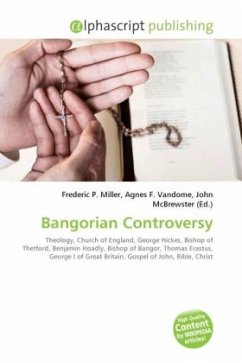
Bangorian Controversy
Versandkostenfrei!
Versandfertig in 6-10 Tagen
23,99 €
inkl. MwSt.

PAYBACK Punkte
12 °P sammeln!
The Bangorian Controversy was a theological argument within the Church of England in the 18th century. The origins of the controversy lay in the 1716 posthumous publication of George Hickes's Constitution of the Catholic Church, and the Nature and Consequences of Schism. In it, Hickes, Bishop of Thetford, excommunicated all but the non-juror churchmen. Benjamin Hoadly, the Bishop of Bangor, wrote a reply entitled, Preservative against the Principles and Practices of Non-Jurors, in which his own Erastian position was sincerely proposed as the only test of truth. However, the controversy commenc...
The Bangorian Controversy was a theological argument within the Church of England in the 18th century. The origins of the controversy lay in the 1716 posthumous publication of George Hickes's Constitution of the Catholic Church, and the Nature and Consequences of Schism. In it, Hickes, Bishop of Thetford, excommunicated all but the non-juror churchmen. Benjamin Hoadly, the Bishop of Bangor, wrote a reply entitled, Preservative against the Principles and Practices of Non-Jurors, in which his own Erastian position was sincerely proposed as the only test of truth. However, the controversy commenced most visibly and vocally when Hoadly delivered a sermon on March 31, 1717 to George I of Great Britain on The Nature of the Kingdom of Christ. His text was John 18:36, "My kingdom is not of this world," and from that Hoadly deduced, supposedly at the request of the king himself, that there is no Biblical justification for any church government of any sort. He identified the church with the kingdom of Heaven it was therefore not of this world, and Christ had not delegated His authority to any representatives.



